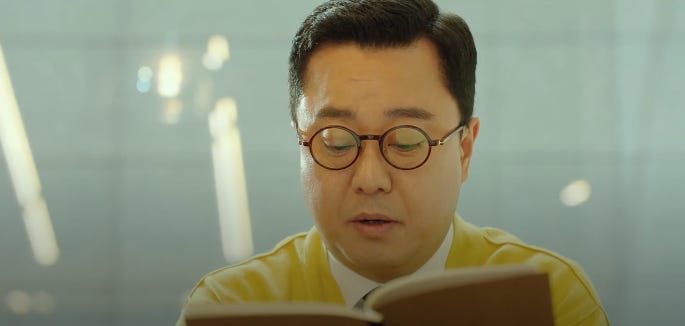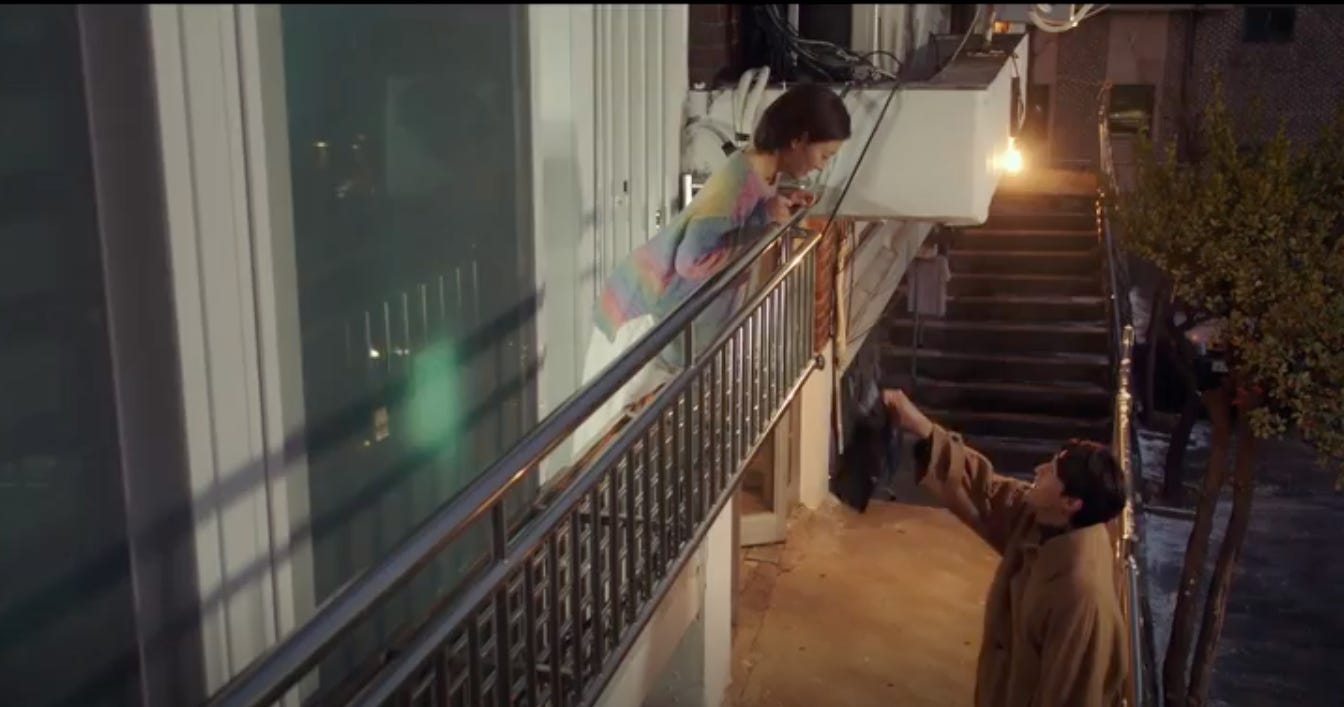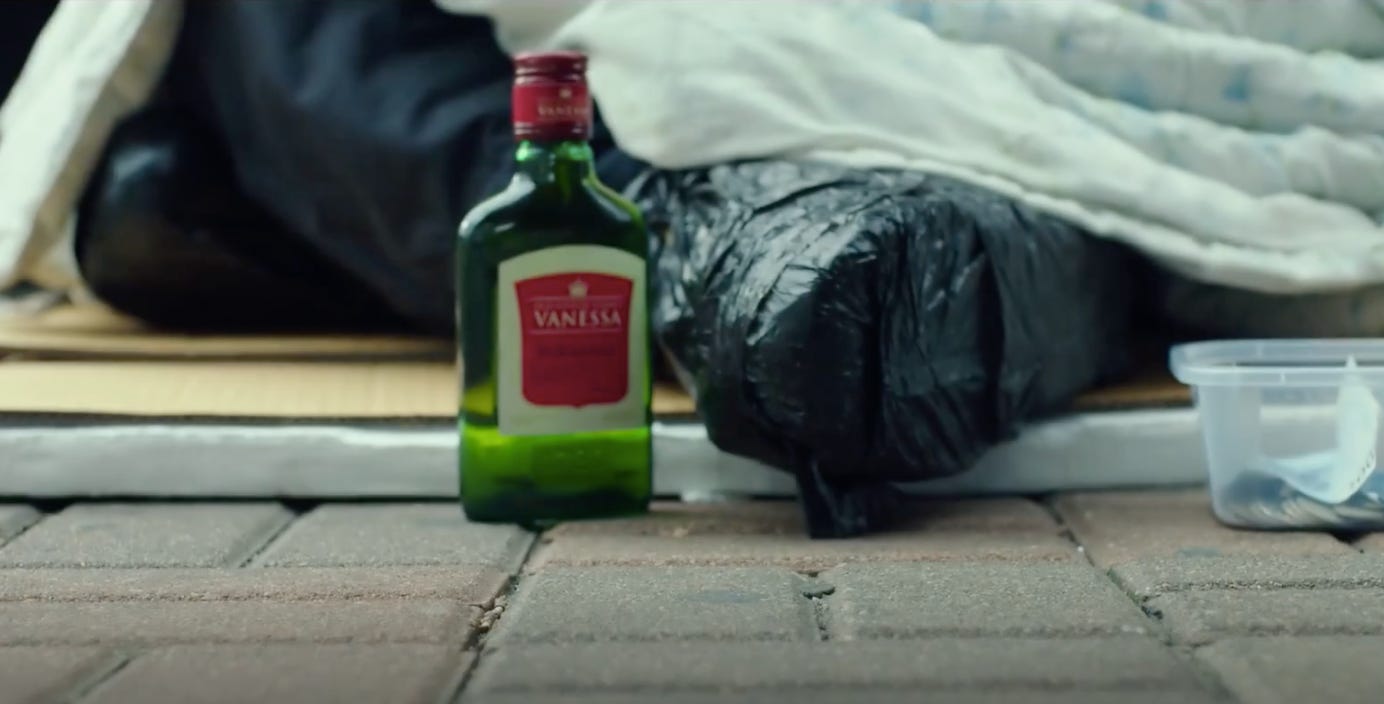Please be aware that this post contains spoilers for the above episodes.
All good things even a drama of the calibre of My Liberation Notes must come to an end. The writer had a story to tell and at the end of 16 episodes, viewers certainly were treated to a varied landscape of ideas and people to come to clear conclusions. Liberation is a journey not a destination so there will always be a place for the Liberation Club. There was never going to be a fairy-tale, happily-ever-after ending but it’s a relief to be offered some reassurance that these individuals whose lives that we’ve been tracking for 8 weeks are in a somewhat better place than they were in at the start. There will always be trade-offs and new challenges awaiting them so life goes on until it ends. Truth be told, the edge-of-the-seat fight scene between Gu and the gambling debt collectors had me on tenterhooks especially as it was taking place so late in the story but it turned out to be the push the taciturn Mr Gu needed to get himself out of the quagmire that he was sinking further into — not entirely of his own making of course but he was in effect feeding the habit hence the beast that was threatening to ravage him completely.
The art of liberation is largely about time. It is a process of lifelong learning. Chang-hee’s arc especially towards the end is indicative of that. As his arc ends he is now the owner of a convenience store with no loan hanging over his head, and in grip of a growing fascination for Korean art and history. As he makes his way to a seminar on Korean art, he “stumbles” into the class next door by mistake. Or is it actually a mistake? As he attempts to make sense of the instructor’s words, he soon realises that he is sitting in a training session for funeral directors. He is about to get up and leave but a thought strikes him which causes him to change his mind. He smiles broadly, takes off his jacket and settles into his seat. It is no mistake — he is meant to be there. His realisation and then embrace of his calling while he is providentially led to a class for future funeral directors has far more profound and spiritual significance than the Cho family’s regular but much more obligatory attendance at church. It’s a humorous moment when the Cho family squabble about what’s the matter with Gi-jeong in the middle of the sermon within earshot of the priest. Their hearts are not in concert with the spirit of the service or the Christian faith. Attendance at church is a practice of habit rather than one being animated by the gospel of grace.
Nevertheless the Cho family are trapped not by religion but by a double-edge tribalism. At his lowest and in hard times they banded together to support each other through the storms. When Tae-hun’s wife left him, his sisters must have been a comfort to him and a pillar of support for young Yu-rim. Undoubtedly he wouldn’t have been able to raise her without them while putting long hours at work. Torn by many loves, Tae-hun is shackled to the status quo. Family is great when harmonious but all families come with their set of baggage. Wasn’t it Tolstoy who wrote that “each unhappy family is unhappy in its own way”? It’s certainly the case for the Yeoms and the Chos although by the end of the series, the Yeoms are less unhappy than they used to be.
In the end however, Tae-hun shows himself a little more liberated by going to Gi-jeong’s place with a bag of egg bread and a single rose broken off from its stem. It’s a reflection of where they’re at in their rather imperfect romance. The broken rose is an undeniable symbol of the fact. However, she’s trying and he’s trying despite the obstacles that lay in their path. It’s an important token, not just an outward expression of his heart but it signals an attempt at accommodation. She’s not hanging around at his spaces much these days (his family aren’t all overflowing with warmth) but he’s going over to hers even if he stumbles clumsily to her place half drunk. It’s not exactly Act 2 Scene 2 from Romeo and Juliet but he gets the job done. Juliet only talks about naming roses but he actually has one to give away. Later he manages to get on the bus and he receives a text from Gi-jeong about his coat buttons done up the wrong way. Then he examines himself and chuckles. Sure, why not? He’s gone and done a silly thing. Maybe. Or could it be that he appreciates the fact that she notices the details? Single dads with family obligations need a bit of good old fashion loving too.
One thing’s for certain, abusing alcohol is slow acting poison. Watching Gu deliberately poisoning himself so he can make it through the day as Chairman Shin’s glorified errand boy becomes an exercise in painful nihilistic voyeurism. Surely he can’t just be doing the watchdog shtick just for the money. This is why Mi-jeong’s small interventions are so key to him crawling out of the pit of despond. It is no accident that both sisters don’t make demands of their respective partners which work both to their advantage o and disadvantage. Consider Gi-jeong’s words to Tae-hun:
“You’re right, I can’t leave you. No, I won’t leave you. What’s wrong with being drawn to someone out of pity? With human emotions you can’t always distinguish between pity, respect and love clearly. I can’t. I’ve got them all balled up in a lump.”
“I don’t know how it got like this. I wanted to be one to cheer you on. That’s what I wanted but it feels like I’m just another woman who’s making your life harder. I mean, to be honest, I don’t know what the problem is. ‘What did Tae-hun do that was so wrong? And why do I feel so wronged?’ I mean, there’s nothing particular I can pick out as an example, it’s just… It’s just this general feeling that I’m losing at something. I’m ashamed to be a woman with so little self-esteem who breaks down at the glare of a kid. I was used to how Gyeon-seon treats people. She’s always been that way ever since high school. ‘But why are her words hurting me again? Because I love Tae-hun? But why does that have to be a reason for me to feel small? Love is supposed to give you strength, but will I be happy if we broke up?’ But when I think about us breaking up, I get a shock under my arm. So, it’s clear I can’t break up with you, which means I have to go further. But I don’t know how to do that.”
This is one time that Gi-jeong’s tendency for verbal diarrhoea comes in handy. The honesty for her own lack of answers brings it own brand of charm to the table. She never wanted to add to his burden but she’s not hanging on because of pity or obligation alone. It’s not that reductionistic — it seldom is. She is inescapably drawn to him regardless of his family woes. Then she throws down the most important existential question posed by the entire drama:
“But, if we have to live because we are born, how are we supposed to live?”
Indeed this is the ontological question that haunts us as we fumble through the hand that we’ve been dealt. Gi-jeong’s dilemma is ours because life is hard. It is however, undeniably a first world problem because in some parts of the world, some are far more preoccupied with where the next meal will come from. To wax philosophical about the complexities of relationships seem like a luxury in light of real suffering experienced by others. However, human beings made in the image of God are moral creatures who think moral thoughts. We long for deep connections and lasting relationships from birth although we do a clumsy job of holding on to the ones we have. Despite providing a sympathetic ear to a recently widowed friend who is happily untethered to in-laws, living alone without Tae-hun by her side is not Gi-jeong’s idea of the good life.
There’s a moment of triumph for Mi-jeong when she helps a former boyfriend out of a potential charge of sexual harassment while they’re both queuing for the ATM. He’s the one who owes her a great chunk of cash and went overseas to take refuge. But he’s back married and gainfully employed nearby. She had gone to his wedding for the purpose of wreaking havoc and denouncing him publicly but Gu called at the right time. At that moment she was stopped in her tracks and immediately interpreted that as a providential finger on the wall to leave things be. She was prevented from exacting her revenge fantasy and on hindsight it may have been a good thing. Whether or not she knows it, her kindness towards the ex is an act of grace. On some level he doesn’t deserve her intervention or kind gesture but he appreciates it and demonstrates it by claiming that he will repay her starting the next day. He apologizes for dragging things out. It’s an awkward moment but it turns out to be a moment of liberation. She no longer needs to be tethered to the brooding resentment of him living rent free in her head. Once he left her in a lurch and with a debt but all that time spent with Gu has given her different priorities. Holding grudges is a sure way of imprisoning oneself in perpetuity.
There’s something about the relationship between Crime and Punishment’s Raskolnikov and Sonya that describes Gu and Mi-jeong’s dynamic. It isn’t about compatibility or suitability in the usual sense but an intervention/encounter that offers refreshment for two parched souls. Salvation might be too much of an exaggeration. But they become sign posts and street lamps for each other. In a very dark place, even a flicker of light from an unlikely source can be just the thing the psychiatrist ordered. Her acceptance of him warts and all does give him just enough of a spark to inch forward toward some change. The coin balancing on the sewer grate is his spiritual ah-ha moment where he determines to leave drinking behind and count his tiniest blessings wherever he may find them. It is his supernatural event. What are the odds of a wayward coin not rolling into the sewer and balancing on its own? God has spoken and Gu gets his wakeup call to give up the demon booze. No one gets to abuse their own bodies indefinitely. Whatever a man reaps, he sows.
As we farewell these men and women, I wish them well. Another chapter in their lives has come to a close. No one knows for certain what the future holds for all or what difficulties lie ahead. As a wise man once said, there’s nothing certain but death and taxes. But having gone through what they have, we can only pray and hope that they will be far better equipped to deal with what comes as they find God in the details.
Coming soon… Podcast episode where absoluteM and I chat about new dramas and My Liberation Notes.












This was beautifully written, your prose and analysis is so eloquent. This is the kind of writing i hope to one day achieve. Amazing work